Karen Landman. Image courtesy of the University of Guelph.
After graduating from the University of Guelph (UOG) in Landscape Architecture, I can tell you first hand that all of the professors there are top notch. However, one in particular has helped me grow in my passion for design and urban agriculture. So, let me introduce you to Karen Landman, PhD, MCIP, RPP, who is an associate professor of Landscape Architecture at UOG. Karen has been in the field for over 20 years and has always seen growing food as important as eating the food itself. Since my love for urban agriculture and design stemmed from Karen, I thought everyone should get to know her and see what she is up to in the profession of landscape architecture. Here are a few questions I recently asked Karen…
Where did your passion on urban agriculture stem from?
I grew up on a farm, have always gardened, and have an academic background in horticulture, landscape architecture and planning. So, I’ve always been interested in plants and the connections that we have with plants. Urban agriculture is a natural outcome of that, and of my academic training.
Karen’s family farm, Landman Gardens. Landman Garden’s offers a CSA to residents close by, a bake shop, a butchery, and fresh goats milk. Image courtesy of Landmangardens.ca
Urban agriculture has recently exploded with popularity, more and more younger adults want to farm, why do you think that is?
I really don’t know but perhaps it’s because of living in a digital age; people are missing connections to nature and to agriculture and are looking for possibilities to fill those gaps. I’ve heard people describe it as the ‘new environmentalism’; others have referred to it as the ‘new golf’. I hope it’s the former!
However, I think there’s a romantic idealism that people hold about what it is to be a farmer, and to earn a living as a farmer. I know from personal experience that it’s very hard work that requires extensive skills, knowledge and commitment. Some people think that anyone can do it. But more fail than succeed, simply because they don’t understand, or have, what it takes to be a successful farmer.
You recently went on a trip, tell us about it. Where did you go? What farms did you visit? Which were your favourite?
It’s not so recent anymore, but I did indeed go on an Urban Agriculture Road Tour, to visit sites that I had heard about or read about. I find it useful to see and learn things for myself, first-hand, so I packed my car, invested in a GPS unit, and hit the road. I drove through the American midwest, down to California, up the coast to BC, then to Edmonton, on to Saskatchewan and back to Ontario.
There was a great variety in the urban agriculture projects that I visited. Of course, I went to Growing Power in Milwaukee and saw a number of other NGO urban agriculture sites, such as Soil Born Farms in California and the Zenger Farm in Portland. I also went to some student farms, such as at the University of California (Davis), Evergreen State College and the University of Oregon. I had the good luck to visit with SPIN farmers extraordinaire, Wally Satzewich and Gail Vandersteen, in Saskatoon. And, of course, I visited a number of community gardens, many of which contribute fresh vegetables to local food banks.
Example of SPIN Farming (Small Plot Intensive). SPIN farming’s abundant polyculture plots offer food closer to markets and residents, and only require a minimal start up investment. Image courtesy of spinfarming.com
It’s tough to choose a favourite. The P-Patch community gardens in Seattle had wonderful artwork; art is often a part of community gardens and NGO urban farms, it seems. Wally and Gail’s production skills in Saskatoon really impressed me; they are very skilled food producers, and their growing sites were immaculate and productive.The University of Oregon student farm was interesting because it is primarily there for landscape architecture students, making it a unique site/mandate. UBC’s student farm had a wonderful children’s day camp happening when I was there, and the kids were making pizza from the veggies they had grown. In hindsight, a highlight was when I chatted with Will Allen at Growing Power.
Founder of Growing Power, Will Allen at his Milwaukee Headquarters, which houses: greenhouses, produce and poultry hoop houses, an apiary, rainwater harvesting system, a retail store, and so much more. Image courtesy of Growing Power’s Facebook page.
What did this tell you about the food trend and where do you see it going?
Well, food isn’t going away, that’s for certain. It’s one thing we all have in common and most of us are interested in it. I think some people (only some) are more mindful of their food and of how important it is to pay attention to our food systems. I don’t think the average consumer is very much aware of the food system that delivers his or her food, but it’s certainly important for designers, planners and policy makers to be aware of it. There has definitely been an increased awareness amongst professionals in the last decade or so, which is hopeful.
How can you relate this back to landscape architecture?
Landscape architects are the first professionals who ‘get’ how food production can fit into the urban and peri-urban landscape. It’s not just about community gardens anymore. It’s also about respecting the arable soils we still have in our urban landscapes, about finding opportunities for people to connect to food production in the urban environment, and about supporting appropriate opportunities to actively grow food for ourselves. We can also make urban agriculture an aesthetic and fun experience.
Does this perspective help you with non food related projects?
I think it does. I think ultimately we’re aiming for improving quality of life and environmental quality, and urban agriculture is a strong link to those aims.
The University of Guelph Center for Urban Organic Farming above. This annual meal takes place with the produce grown on site, and brings the community together. Image courtesy of Karen Landman.
Have an opinion? How do you see Landscape Architecture & Urban Agriculture growing together?
Published in Blog





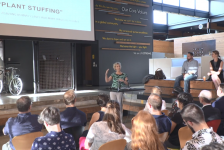

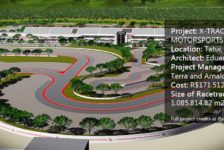
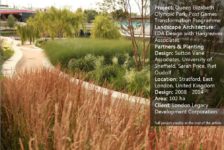
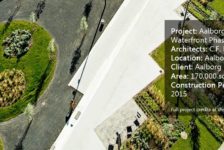

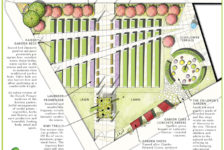
Kellie Spence
Karen is a passionate professor and actively involved in building communities using landscape architecture, planning and urban agriculture. She is an inspirational leader and works effectively (and tirelessly!) to promote the profession and expand the practice. .